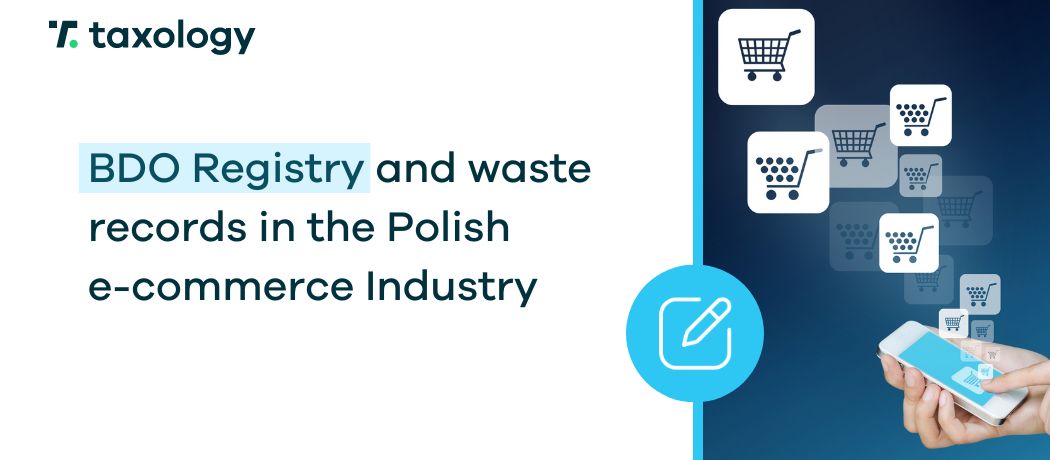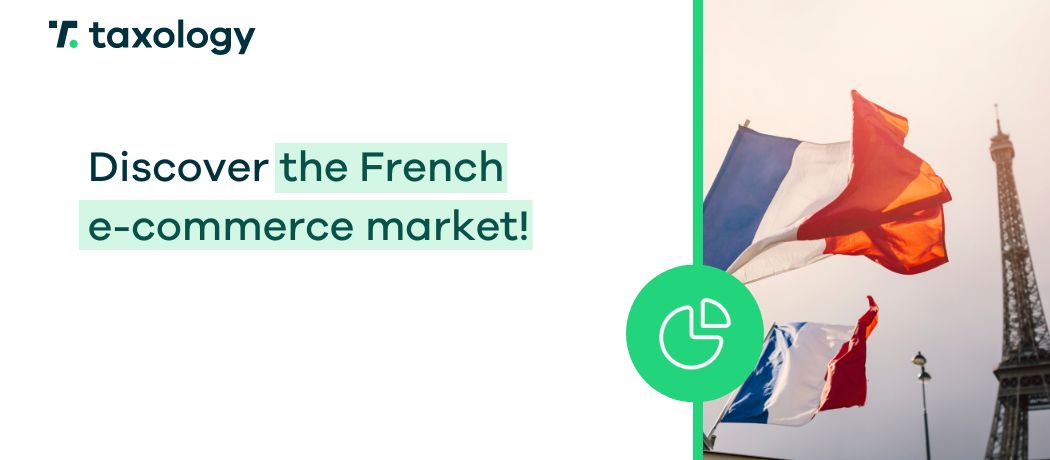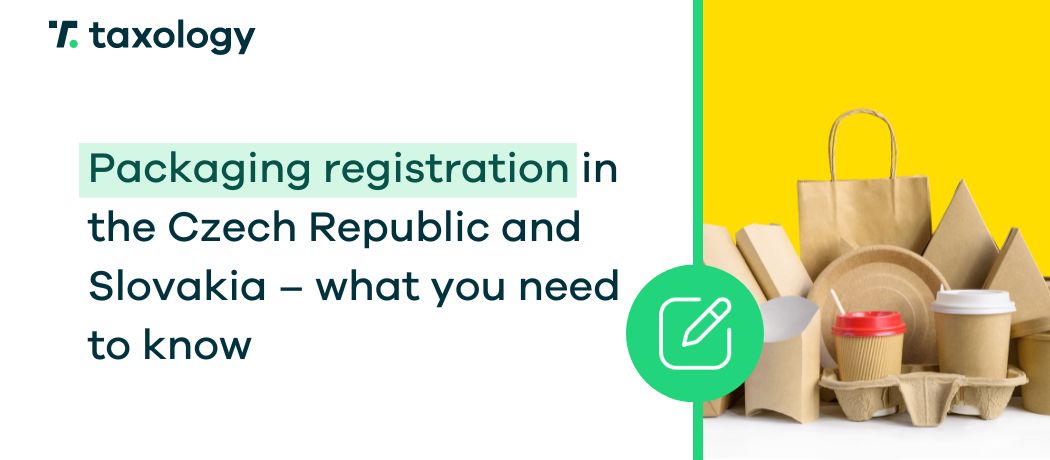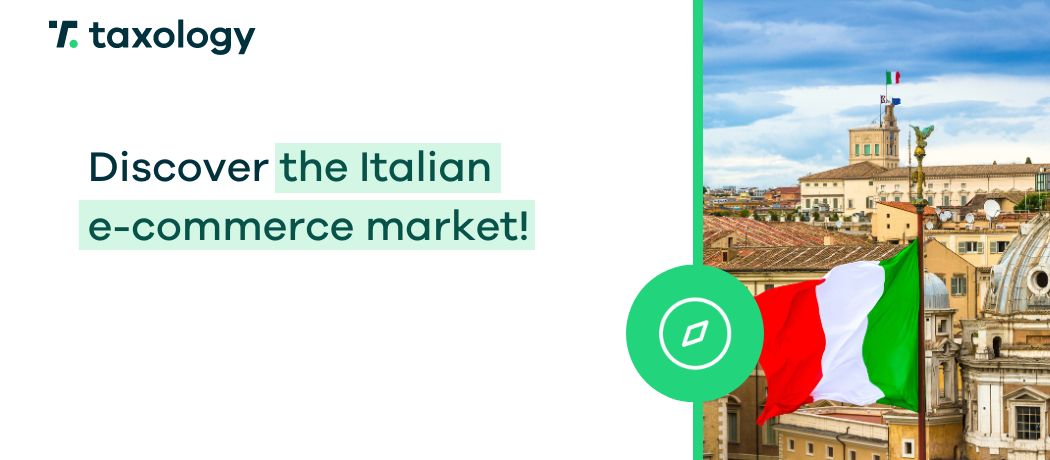France is one of the largest and wealthiest countries in Europe, making it an extremely attractive market for expansion for many entrepreneurs in the e-commerce sector. However, like any other […]
Read in: 5 minBDO Registry and waste records in the Polish e-commerce industry
- Last update: 11.04.2024
- Published: 23.10.2023
- Read in: 10 min
In recent years, there has been a clear increase in environmental awareness, accompanied by changes in regulations and the creation of new tools related to this. In Poland, an example of such a situation includes regulations that require, among other things, the obligation to keep waste records and the associated need to register in the BDO registry to document waste quantities or issue specific documents concerning their movement. Furthermore, all these aspects also apply to the e-commerce industry, particularly online stores, which we describe in the article below.
From this article, you will learn:
- What is BDO and the BDO registry?
- What does the obligation to keep waste records involve?
- What documents facilitate the keeping of records?
- Who is obligated to register, and who is automatically included in the BDO registry?
- Who has the possibility of obtaining an exemption from the BDO registry?
- What is simplified waste record-keeping?
- Where to register in the BDO, what documents are needed, and what is the cost of registration?
- What are the consequences of not registering in the BDO?
- How does the BDO relate to the e-commerce industry?
What is BDO?
The Database on Products and Packaging and Waste Management (“Baza Danych o Produktach i Opakowaniach oraz o gospodarce odpadami”, BDO in short in Polish) is an information system that allows for the collection of waste management and handling information.
Moreover, entities that introduce packaged products to the market can fulfill their obligations related to possession and disposal of waste entirely electronically thanks to BDO.
It is also worth emphasizing that the BDO system was created to counteract irregularities in waste management, such as the creation of unregistered landfills.
Obligation to keep waste records
Due to their operations in Poland, many companies must fulfill the obligation to keep waste records. This means they must collect information about the waste and issue electronic documents related to this process, such as waste transfer cards.
It is worth noting that until December 31, 2020, businesses could keep waste records in paper form. However, from January 1, 2021, waste records must be kept electronically, facilitated by the BDO registry.
Furthermore, the obligation to keep records typically applies to non-municipal waste that is handled within municipal waste management systems and is not classified as hazardous waste.
BDO Registry
The BDO Registry—Registry of Entities Introducing Products, Packaged Products, and Managing Waste—is an integral part of the entire Database and a key tool in waste management, allowing entities to fulfill their registration obligations entirely electronically.
It was launched on January 24, 2018, by the Ministry of Climate (formerly the Ministry of Environment). Both the Database and the Registry are managed by provincial marshals.
Registration in the BDO registry enables registered entities to keep waste records and submit annual reports on waste, products, and packaging management. Moreover, keeping waste records electronically has been mandatory since January 1, 2021. Until December 31, there was the possibility to keep records in paper form.
Waste catalog
The BDO Registry allows for the maintenance of a waste catalog essential in the record-keeping process, described by the regulation of the Minister of Climate on January 2, 2020, concerning the waste catalog, available at the provided address. According to the regulations, the catalog must record each type of waste generated and transferred, collectively numbering several hundred.
Waste transfer card and waste record card
In addition to maintaining a waste catalog, businesses must also issue waste transfer cards, which include details such as:
- the weight and code of the waste,
- the address of the company responsible for transportation,
- the registration number of the vehicle collecting the waste,
- the date and time of waste transfer.
Besides the waste transfer card, a waste record card is also mandatory. Businesses issue this after transferring waste for further processing.
Other documents
The BDO Registry also allows for the issuance of other documents related to specific business profiles, such as:
- municipal sewage sludge record card,
- used electrical and electronic equipment record card,
- withdrawn vehicles record card,
- hazardous waste record card.
It’s also important to emphasize that all the aforementioned documents, as well as the data based on which they were created, must be stored for five years and made available when requested by administrative authorities.
Who is subject to the obligation to register in the BDO?
The obligation to register in the BDO applies to entities managing waste. Additionally, businesses that produce packaged products or are involved in trade and offer plastic bags must register in the BDO. Summarizing the above – entities facing the obligation to register in the BDO include:
- those generating waste, obligated to keep waste records,
- those introducing packaged products to the market, as well as tires, lubricating oils, vehicles, batteries, or accumulators, electrical and electronic equipment,
- those producing or importing packaging, or purchasing it from EU companies in intra-community transactions.
It is worth summarizing that entities that only generate municipal waste (collected as part of municipal waste management systems), which are not considered hazardous waste, do not fall into the above groups and do not need to register in the BDO. However, if you are unsure and want to check whether you are subject to the obligation to register in the BDO, you can use the tool offered at the provided address or contact the Provincial Marshal’s Office.

Remember about VAT registration!
When running a business, you may be required to register and settle VAT, also in other countries. If this is the case, contact us and our VAT Compliance specialists will help you with your obligations.
Schedule a consultationWho is exempt from the obligation to register in the BDO?
It is also worth detailing who is exempt from the obligation to register in the BDO:
- individuals and organizational units (non-entrepreneurs) that use waste for their own needs,
- entities owning land where municipal sewage sludge is applied for cultivating plants intended for compost production, and plants not intended for consumption or feed production,
- entities engaged in non-professional activities related to the collection of packaging waste and waste in the form of used consumer articles such as medications and their packaging,
- entities that transport packaging they have produced themselves,
- farmers generating waste and managing areas below 75 hectares,
- individuals conducting business or entrepreneurs who generate municipal waste and are covered by their collection system.
Exemption from the obligation to register in the BDO
It is also important to note that some entities are exempt from the obligation to register in the BDO, and these exceptions are specified in the regulation of the Minister of Climate dated December 23, 2019, which defines the types and amounts of waste for which there is no obligation to keep records.
Examples of waste specified in the regulation include packaging waste from collective packaging, packaging from products used in service provision, toners, printers, CDs, DVDs, fluorescent tubes, and batteries used in offices or stores, expired or unsuitable for consumption products, and specific construction waste.
Moreover, the waste specified in the regulation only pertains to waste not classified as municipal waste. There are a total of 46 such types, and the full list can be found in the mentioned legislation.
Simplified waste record-keeping
It is also worth mentioning simplified waste record-keeping, which exempts entrepreneurs from the obligation to issue electronic record cards but still requires them to issue waste transfer cards. Simplified record-keeping is intended for:
- those generating hazardous waste up to 100 kg annually,
- those generating waste other than municipal and hazardous waste up to 5 tons annually,
- waste transporters who perform only the transport service,
- landowners where municipal sewage sludge is applied for:
- cultivating plants intended for compost production,
- cultivating plants not intended for consumption or feed production,
- cultivating all agricultural crops introduced into commercial circulation, including those intended for feed production.
How to register in the BDO?
Registration in the BDO can be achieved in two ways – by submitting an application independently or receiving a registration in the BDO ex officio. In the first case, if the application is correctly filled out, the provincial marshal will register the entity in the BDO. In the second case, a business is automatically registered in the BDO, and this occurs when the company has:
- an integrated permit,
- a permit for waste production,
- a permit for collecting or processing waste,
- a decision approving a program for managing mining waste or a permit for operating a waste disposal facility,
- a concession for underground waste storage based on the Act of June 9, 2011 – Geological and Mining Law,
- registration in the regulated activity registry regarding the collection of municipal waste from property owners.
When the above cases have been discussed, let’s move on to the registration process.
How to submit an application for entry into the BDO?
The application for registration in the BDO system must be submitted online, and the decision in this matter, as noted above, is made by the provincial marshal. If the application is properly filled out, the entry in the BDO registry should occur within 30 days from the date of application submission.
This application is submitted through the service rejestr-bdo.mos.gov.pl at the selected provincial marshal’s office, for which a Trusted Profile or e-ID service is necessary.
After the properly conducted process, the provincial marshal makes an entry in the registry and assigns an individual BDO registration number.
It is important to note that businesses obligated to register in the BDO must complete the registration before starting their operations.
Documents required during BDO registration
The registration process in the BDO also requires the entrepreneur to provide appropriate documents, which vary depending on the business profile, and include, among others:
- For entities introducing equipment or authorized representatives — a copy of the contract with an organization for the recovery of electrical and electronic equipment, and a copy of the document confirming the provision of financial security,
- For authorized representatives — a copy of the contract with manufacturers of electrical equipment,
- For recovery organizations — a copy of the certificate of payment equal to the share capital of the recovery organization to cover this capital issued by the bank holding the account or fixed-term deposit, or a statement of payment of the aforementioned amount,
- For entities introducing batteries or accumulators — information confirming voluntary participation in the eco-management and audit system,
- For entities introducing vehicles — a contract concluded with entrepreneurs running dismantling stations.
Registration fee
In addition to documents, companies must also pay costs associated with registration, which depend on the size of the business. The registration fee for micro-enterprises is 100 PLN, and for other entities, it is 300 PLN. It is important to remember that this fee is an annual fee that must be renewed regularly.
It is worth emphasizing that under the term micro-enterprise, there are entities that employed fewer than 10 employees in one of the two previous years, and their annual net turnover did not exceed the equivalent of 2 million euros expressed in PLN or the sum of their balance sheet assets prepared at the end of one of those years did not exceed the equivalent of 2 million euros expressed in PLN.
Moreover, the registration fee in the BDO applies to:
- entities introducing equipment and authorized representatives,
- entities introducing batteries or accumulators,
- entities introducing vehicles,
- producers, importers, and intra-community purchasers of packaging,
- entities introducing products in packaging on the territory of the country,
- entities introducing tires on the territory of the country,
- entities introducing lubricating oils on the territory of the country.
Furthermore, the entities mentioned above are obligated to include their registration number on documents generated due to their business activities, such as VAT invoices, fiscal receipts, purchase-sale contracts, waste transfer cards, and waste records.
Consequences of not registering in the BDO
Entrepreneurs who are obligated to register in the BDO and fail to do so will not be able to transfer the waste they produce to the receiver or issue an electronic waste transfer card.
Additionally, entities that have not registered in the BDO, failed to keep waste records, or improperly conducted waste reporting may be subject to penalties:
- arrest or fines ranging from 100 to over 1,000,000 PLN imposed by courts,
- financial penalties ranging from 5,000 to 1,000,000 PLN imposed by the Provincial Inspector for Environmental Protection.
The first of these penalties applies when an entrepreneur has not submitted an application for entry, change of entry, or deletion from the BDO registry; submitted an application inconsistent with the factual state; violated the reporting or record-keeping obligation; not stored, made available, or submitted documents and data, as required by law, or did not have confirmation generated from the BDO during waste transport.
The second penalty can be applied in connection with activities that must be registered in the BDO system, and the entrepreneur failed to ensure this or ensured it, but the registration number is not displayed on the documents he generates.
BDO and the Polish e-commerce industry
BDO directly affects the e-commerce industry. Online stores are entities mentioned in Article 8, points 23 and 24, of the Act of June 13, 2013, on packaging and packaging waste management. Consequently, obligations related to BDO directly apply to them, and according to the content of the aforementioned article, three situations can be distinguished.
Producer
If an online store introduces goods in packaging under its own trademark, or under its own name and surname or business name and has ordered the production of these products from another entrepreneur, it can be considered a producer. For example, this might apply to gastronomic establishments that package their dishes in packaging with their own logo.
Distributor
In the context of BDO, a distributor is an entity that packages products produced by another entrepreneur and introduces them to the market. Examples include online shoe stores that package shoes purchased from manufacturers in their own packaging and send them to customers.
Importer
An online store can also be an importer in the context of BDO when it makes products in packaging or packaging available for the first time in the country, either for payment or free of charge, for use or distribution. Furthermore, introduction to the market is also considered to occur for the purposes of one’s own business activities:
- import of packaging,
- import of products in packaging,
- intra-community acquisition of goods,
- intra-community acquisition of products in packaging.
It is important to remember that the three examples above concern situations when entrepreneurs introduce physical products to the market. However, when they sell digital products, such as e-books or online courses, they do not have an obligation to register in the BDO.
Additionally, if you are active in the e-commerce industry, especially across different countries, you have obligations related to VAT! If so, we can help you with registrations, settlements, declarations or VAT OSS. Schedule a consultation, and our VAT Compliance specialists will take care of the rest for you and your business!
What is the Polish BDO registry? - Summary
BDO is a key element of the waste management system in Poland. This system not only increases transparency in waste management, but also contributes to increased responsibility and facilitates the recycling of waste generated as a result of business activities.
In addition, the BDO register allows you to keep waste records fully electronically, and access to it can be obtained by obtaining an appropriate permit in advance or submitting an application for registration, which is approved by the Voivodeship Marshal.
However, it should be remembered that the obligation to register with BDO is described in many acts, therefore the provisions specifying entities that must register may sometimes seem ambiguous or confusing. Therefore, in order to obtain a clear answer whether your company must obtain a BDO registration number, it is worth contacting the Marshal’s Office.
However, if you operate in cross-border e-commerce and need support in accounting or in the field of VAT or VAT OSS – with registrations, settlements or declarations – schedule a consultation and our VAT Compliance specialists will take care of the rest for you and your company!
In turn, if you want to learn more about e-commerce, VAT or regulations in force in other countries, check:




